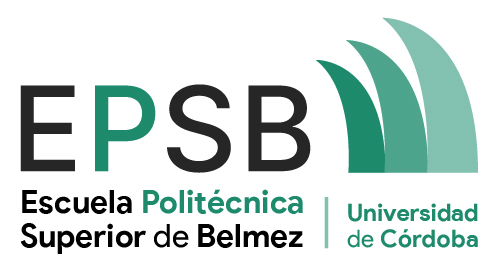SKILLS FOR THE CIVIL ENGINEERING DEGREE (ORDER CIN / 307/2009 - BOE-nº 42 - 02/18/2009)
Necessary skills for the title of Degree in Civil Engineering:
- BTS1 (Basic Training Skill 1): Ability to solve mathematical problems that may arise in engineering. Ability to apply knowledge about: linear algebra; geometry; geometrical differences; differential and integral calculus; differential equations and partial derivatives; numerical methods; numerical algorithm; statistics and optimization.
- BTS2: Spatial vision skills and knowledge of graphic representation techniques, both by traditional methods of metric and descriptive geometry, and by computer aided design (CAD) applications.
- BTS3: Basic knowledge about the use and programming of computers, operating systems, databases and software used in engineering.
- BTS4: Understanding and mastering the basic concepts of the general laws of mechanics, thermodynamics, fields and waves, and electromagnetism, and their applications in solving engineering problems.
- BTS5: Basic knowledge of geology and terrain morphology and their applications in problems related to engineering. Climatology.
- BTS6: Adequate knowledge of the business model, institutional and legal framework of a business. Organization and management of companies.
2. Common skills of the civil branch:
- SSC1 (Specific Skill common to the Civil branch 1): Knowledge of the topographic techniques essential for obtaining measurements, drawing blueprints, establishing paths, defining definite geometries or controlling movements of structures or earthworks.
- SSC2: Theoretical and practical knowledge of the chemical, physical, mechanical and technological properties of the materials most used in construction.
- SSC3: Ability to apply knowledge of building materials in structural systems. Knowledge of the relationship between the structure of the materials and the mechanical properties derived from it.
- SSC4: Ability to analyze and understand how the characteristics of structures influence their behavior. Ability to apply knowledge about the resistant functioning of structures to size them according to existing regulations and using analytical and numerical calculation methods.
- SSC5: Knowledge of geotechnics and, soil and rock mechanics as well as their application in the development of studies, projects, constructions and exploitations where it is necessary to perform earthworks, foundations and containment structures.
- SSC6: Knowledge of the fundamentals of the behavior of reinforced concrete structures and metallic structures and the ability to think up, design, construct and maintain this type of structures.
- SSC7: Knowledge of the concepts and technical aspects related to piping systems, both in pressure and open channel flow.
- SSC8: Knowledge of the basic concepts of surface and underground hydrology.
- SSC9: Ability to analyze the problems of health and safety in construction works.
- SSC10: Basic knowledge about the electrical power system: power generation, transmission network, routing and distribution, as well as types of lines and conductors. Knowledge of the regulations on low and high voltage.
- SSC11: Ability to apply methodologies of environmental impact studies and assessments.
- SSC12: Knowledge of construction procedures, construction machinery and techniques of organization, measurement and valuation of works.
3. Specific Skills of Technology in Civil Constructions:
- SSCC1 (Skill of specific technology civil constructions 1): Knowledge of the typology and the bases of calculation of the prefabricated elements and their application in the manufacturing processes.
- SSCC2: Knowledge of design, calculation, construction and maintenance of building works in terms of structure, finishes, facilities and proper equipment.
- SSCC3: Ability for construction and maintenance of marine works.
- SSCC4: Ability for the construction and maintenance of roads, as well as for the designing of the project and the elements that compose the basic road endowments.
- SSCC5: Ability for the construction and maintenance of railway lines, knowledge to apply the specific technical regulations and differentiating the characteristics of the mobile material.
- SSCC6: Capacity to apply the construction procedures, construction machinery, and the planning techniques of works.
- SSCC7: Capacity for the construction of geotechnical works.
- SSCC8: Knowledge and understanding of the supply and sanitation systems, as well as their designing, construction and conservation.
4. Specific Skills of Technology in Hydrology:
- SSH1 (Hydrology Specific Technology Skill 1): Knowledge and ability for project design and size works and hydraulic installations, energy systems, hydroelectric development and planning and management of surface and underground water resources.
- SSH2: Knowledge and understanding of the functioning of ecosystems and environmental factors.
- SSH3: Knowledge of urban waterworks as they related to distribution and sanitation.
- SSH4: Knowledge and understanding of the systems of supply and sanitation, as well as their designing, construction and conservation.
5. Final capstone project requirement for the degree:
- FCP (Final Capstone Project Requirement): An original project to be carried out individually to be presented and defended in front of a university faculty panel. The task will consist of a field project of a professional nature in which the specific technologies of civil engineering are synthesized and integrated demonstrating the skills acquired in the teachings.

